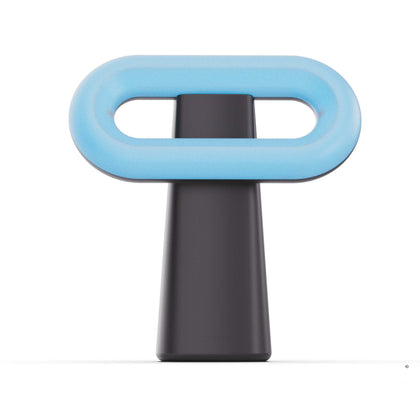
Sleep is vital for high cognitive performance
|
|
Time to read 2 min
Modern life asks a lot from our brain. We must learn and synthesise new information, solve complex problems, and make countless decisions every day. It's no wonder entire industries have sprung-up around products—such as nootropics and brain training apps— which claim to give your brain a boost. But there’s a growing body of research that shows improving your sleep quality is one of the most effective ways to enhance your cognition.
What is cognitive performance?
High cognitive performance is when you’re able to use your brainpower to its full potential. By contrast, low cognitive performance feels like a dense layer of fog has descended upon your mind. You may find it difficult to recall a word or maintain focus. These two different states couldn’t feel more different but measuring this distinction scientifically can prove challenging. Research generally focuses on three objective aspects of cognitive performance; reaction time, emotional reactivity, and the ability to form and recall memories.
REACTION TIME
Reaction time measures how long it takes to respond to a given stimulus, such as the time it takes to brake upon seeing a hazard while driving. Unsurprisingly, slow reaction time increases the risk of traffic accidents. The right quality and quantity of sleep have consistently been shown to improve reaction time1. On the other hand, those sleeping less than seven hours have slowly reflexes1, resulting in a significantly elevated crash risk, according to a study by the AAA Foundation for Traffic Safety2.
EMOTIONAL REACTIVITY
When tough decisions must be made, you probably want your emotional, knee-jerk reactions to be moderated by rational thought. This relies on a balance between the regions of the brain known as the prefrontal cortex and the amygdala. The prefrontal cortex, which is responsible for reason, problem-solving and decision making, is larger in humans relative to other primates. The amygdala is a brain region associated with the fight or flight response. Research using MRI scans of the brain has revealed that the careful balance between the prefrontal cortex and amygdala hinges on adequate sleep. According to neuroscientist Matthew Walker,
""With a full night of plentiful sleep, we have a balanced mix between our emotional gas pedal (amygdala) and brake (prefrontal cortex).3"
When you’re under slept, however, this relationship becomes unstable— resulting in heightened emotions.
MEMORY
Each night while we're asleep, our brain performs processes crucial to memory consolidation. Fresh information is transferred to long term memory, which in turn, frees up our inbox, ensuring our brain is ready to learn new information the following day3. Research indicates that even a 90-minute nap following new information can boost memory by 20% when compared to staying awake4. Losing a single night of sleep can create a memory deficit of 40%—which is why experts advise against all-nighters3.
Conclusion
Sleep is a key ingredient for mental clarity. It can improve reaction time, lower emotional reactivity, and enhance memory. But healthy sleep starts with your circadian rhythm.
References
- Van den Berg, J. & Neely, G. Performance on a Simple Reaction Time Task While Sleep Deprived. Percept. Mot. Skills 102, 589–599 (2006).
- Tefft, B. C. Acute Sleep Deprivation and Risk of Motor Vehicle Crash Involvement. https://trid.trb.org/view/1436965 (2016).
- Walker, M. P. Why we sleep: unlocking the power of sleep and dreams. (Scribner, an imprint of Simon & Schuster, Inc, 2017).
- Wamsley, E. J. & Stickgold, R. Memory, Sleep, and Dreaming: Experiencing Consolidation. Sleep Med. Clin. 6, 97–108 (2011).



